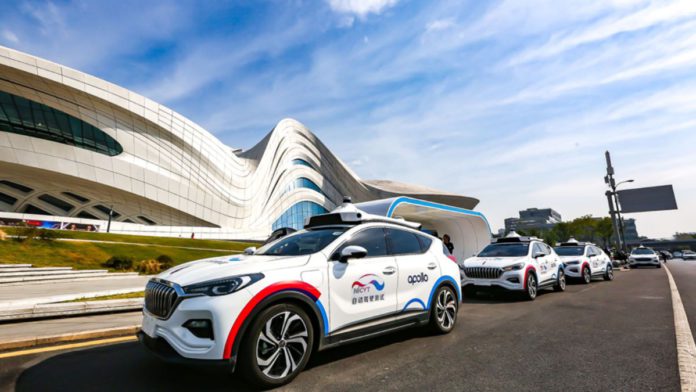Tech giant Baidu which operates China’s largest search engine, announced it has expanded the commercial operation area and hours of its driverless taxi service in Wuhan, Central China. The deployment of robotaxis at night in Wuhan by the company’s autonomous ride-hailing platform Baidu Apollo Go heralds a new phase in the commercial use of autonomous driving in China.
The public will be able to use the robotaxis at Junshan New City in the Wuhan Economic and Technological Development Zone between 7 am and 11 pm starting this week, according to a statement from Baidu on Monday. Its autonomous vehicles could previously only be used in the city from 9 am to 5 pm. The revised program is anticipated to serve one million customers in selected neighborhoods of Wuhan, a metropolis of more than ten million people.
One of the major technological challenges with autonomous driving has always been the nighttime environment since it is difficult for cars to discern objects and pedestrians in low light. After beginning to use a combination of external cameras, radars, and lidars to improve visibility in poor visibility conditions, the company made the latest announcement.
Read More: Baidu unveils its first superconducting quantum computer Qianshi
The initiative reflects Baidu’s ambitions to boost the autonomous vehicles industry and a potential shift in China’s level of comfort with new technologies. In other Chinese cities where Baidu is operating its robotaxis like Beijing, Shanghai, and Shenzhen, Baiduthe company must have a human safety operator in the vehicle.
Apollo Go now operates over 50 completely autonomous taxis in Wuhan, covering an area of more than 130 square kilometers. Last month, Baidu published a concept for its sixth-generation electric robotaxi, the Apollo RT6 EV, a hybrid between an SUV and a minivan with a removable steering wheel.


